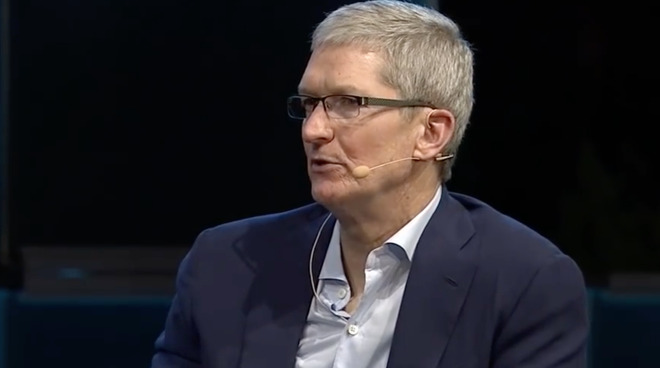Senator Lindsey Graham is pressing for new laws that would combat online child abuse, but do so by removing all end-to-end encryption and giving law enforcement open access to private data.

Back in 2015, Tim Cook told the "Wall Street Journal" that encryption would become an increasing concern for citizens
Republican Senator Lindsey Graham is behind a draft bipartisan bill called the 'Eliminating Abusive and Rampant Neglect of Interactive Technologies Act of 2019'' or EARN IT. Its stated aims are to "develop recommended best practices... regarding the prevention of online child exploitation." However, the methods Graham proposes would effectively ban all end-to-end encryption.
"The absolute worst-case scenario could easily become reality," think tank TechFreedom president Berin Szoka told Bloomberg. "DOJ could effectively ban end-to-end encryption."
The act would introduce a National Commission on Online Child Exploitation Prevention "and for other purposes." Senator Graham's draft bill proposes a structure for the Commission, which would comprise 15 people including the US Attorney General.
The greater part of Senator Graham's proposals outline creating and enforcing age limits for online material, plus a rating system to categorize images by severity.
At no point does the draft bill mention encryption, however its requirements cannot be complied with if end-to-end encryption is used. Companies with any public or private online discussion areas, such as Whatsapp and Facebook, would be required to divulge user details to law enforcement.
"[Best practices] shall include... coordinating with law enforcement agencies and other industry participants to preserve, remove from view, and report material relating to child exploitation or child sexual abuse," says the draft bill.
"[Also] retention of evidence and attribution or user identification data relating to child exploitation or child sexual abuse, including such retention by subcontractors," it continues.
Senator Graham's proposals explicitly state that the result will be changes to the Communications Decency Act of 1934, which currently allows online services to shield themselves from lawsuits over such materials.
Neither Apple nor any online companies have publicly responded to the proposals yet. However, Apple has and continues to be a strong and vocal proponent of the necessity for end-to-end encryption and the dangers of removing it.
There is currently no date for when the draft bill will proceed further toward legislation.
However, it comes after FBI officials have reportedly been concerned over US Attorney General William Barr's pressures to weaken or remove end-to-end encryption.
Most recently, Apple's senior director of global privacy, Jane Horvath, spoke at CES in January about the company's position on weakening encryption to help combat crime.
"Building back doors into encryption is not the way we are going to solve those issues," she said.


